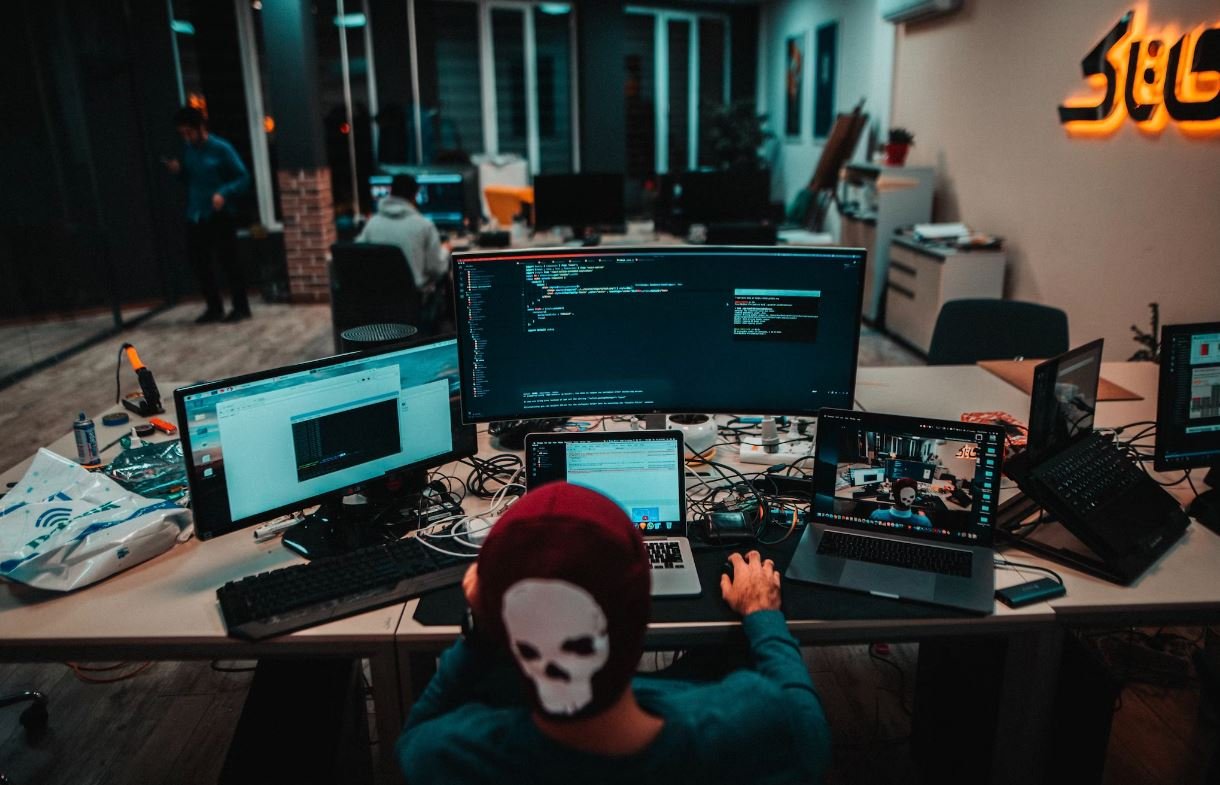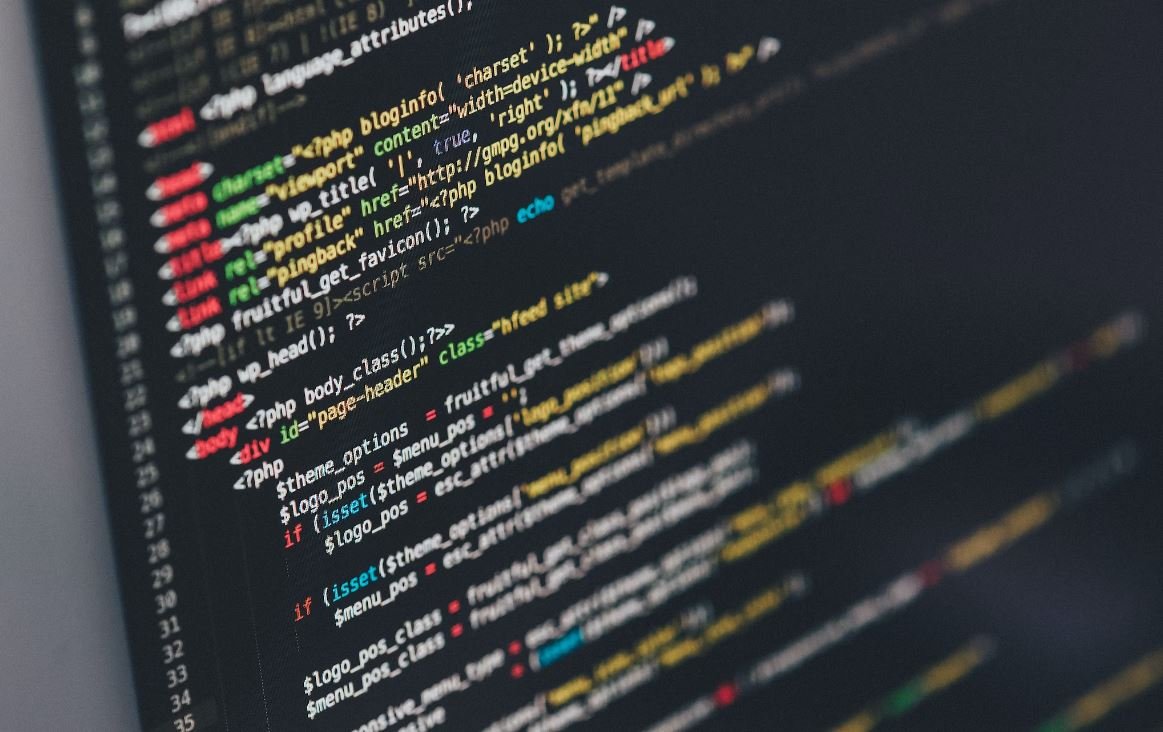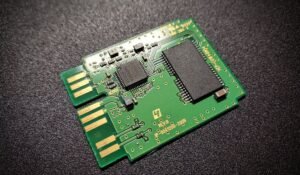AI for Films
Artificial Intelligence (AI) has revolutionized many industries, and the world of film production is no exception. From pre-production to post-production, AI technologies offer countless benefits to filmmakers, enhancing creativity, efficiency, and overall film quality. In this article, we will explore how AI is used in the film industry and the impact it has on the filmmaking process.
Key Takeaways
- AI technologies are transforming the film industry by enhancing creativity, efficiency, and film quality.
- From pre-production to post-production, AI is used in various stages of the filmmaking process.
- AI enables filmmakers to automate time-consuming tasks, such as script analysis and video editing.
- Through machine learning, AI can generate realistic visual effects and improve CGI.
- AI-powered recommendation systems help filmmakers make data-driven decisions during casting and distribution.
AI in Pre-production
In the pre-production phase, AI tools assist filmmakers in various tasks. **These tools** leverage natural language processing (NLP) to analyze scripts and provide valuable insights. For instance, they can estimate the emotional intensity of scenes, identify potential plot issues, and generate alternative dialogues *to enhance the script*. Additionally, AI algorithms can analyze large volumes of data from film databases, assisting casting directors in finding the right actors for specific roles.
AI in Production
During production, AI technologies offer significant advantages to filmmakers. **One notable application** is the use of AI-powered drones for capturing aerial shots. These drones can be programmed to follow a predetermined flight path, ensuring smooth and precise footage. Furthermore, AI-based camera systems can automatically adjust camera settings, such as focus and exposure, to achieve optimal cinematography results. *This eliminates the need for manual adjustments, saving time and improving efficiency on set*.
AI in Post-production
Post-production is an area where AI truly shines. Many time-consuming tasks, such as video editing and color grading, can be automated using AI algorithms. **AI-powered editing tools** analyze the footage, identify the best shots, and generate a rough cut based on predefined criteria. This speeds up the editing process and allows editors to focus on refining the final product. Additionally, AI can be used to enhance computer-generated imagery (CGI) and create realistic visual effects. *By leveraging deep learning techniques, AI algorithms can generate high-quality effects, making scenes more immersive and visually stunning*.
Data-driven Decision Making
AI-powered recommendation systems play a crucial role in data-driven decision making throughout the filmmaking process. **These systems** analyze historical box office data, audience demographics, and market trends to provide actionable insights. For example, AI can help filmmakers determine the ideal release date and distribution strategy based on predicted demand and competition. Moreover, AI algorithms can assist in casting decisions by analyzing past performances, social media presence, and audience reception of potential actors. *This data-driven approach increases the chances of success and helps filmmakers make informed decisions, mitigating risks*.
Tables
Below are three tables, each presenting interesting information and data points related to AI in films.
| AI Application | Benefits |
|---|---|
| Script Analysis | Enhanced creativity and improved storytelling. |
| Automated Editing | Time and cost savings, increased efficiency. |
| CGI Enhancement | Realistic visual effects, improved immersive experience. |
| Data-driven Decision Making | Informed casting and distribution strategies, reduced risks. |
| AI Technology | Use Case |
|---|---|
| Natural Language Processing (NLP) | Script analysis, dialogue generation. |
| Machine Learning | Realistic CGI, recommendation systems. |
| Computer Vision | Automated camera systems, drone cinematography. |
| AI Technology | Advantages |
|---|---|
| Deep Learning | High-quality visual effects, improved CGI. |
| Reinforcement Learning | Optimized drone cinematography, precise shots. |
| Recommendation Systems | Data-driven decision making, audience targeting. |
Summary
AI technologies have transformed the film industry, providing filmmakers with valuable tools to enhance creativity, streamline production processes, and make data-driven decisions. **By harnessing the power of AI**, filmmakers can automate time-consuming tasks, improve visual effects, and optimize casting and distribution strategies. The integration of AI into the filmmaking process is here to stay, empowering filmmakers to create even more captivating and visually stunning films.

Common Misconceptions
AI for Films
Artificial Intelligence (AI) has become an integral part of the film industry, revolutionizing the way movies are made and consumed. However, there are several common misconceptions that people have about AI in films. These misconceptions often stem from misinformation or myths surrounding AI technology.
- AI completely replaces human creative input in filmmaking.
- AI can generate high-quality films without any human intervention.
- Using AI in films will lead to job losses in the industry.
Firstly, many people mistakenly believe that AI completely replaces human creative input in filmmaking. While AI can assist in various aspects of movie production, such as scriptwriting and VFX, it is still unable to replicate the complex emotions, narratives, and artistic visions that humans bring to the table. Films require the human touch to truly connect with audiences.
- AI cannot replicate the human ability to convey emotions effectively.
- Human creativity is vital in crafting unique and compelling stories.
- Collaboration between AI and humans can lead to innovative filmmaking.
Another common misconception is that AI can generate high-quality films without any human intervention. While AI has advanced in generating certain elements like deepfakes or enhancing visual effects, it still lacks the critical thinking, intuition, and moral judgment that humans possess. AI can certainly aid filmmakers, but it cannot replace their expertise and creative decision-making skills.
- AI lacks the ability to make critical judgments and artistic choices.
- Filmmaking involves complex decision-making that AI cannot replicate.
- Combining AI with human expertise can enhance the overall film quality.
The belief that using AI in films will lead to job losses in the industry is also a prevalent misconception. While AI can automate certain repetitive tasks, it also creates new opportunities and roles within the filmmaking process. From AI engineers to AI-assisted virtual cameramen, the implementation of AI technology requires a range of skilled professionals who work alongside AI to enhance the final product.
- AI technology creates new job roles in the film industry.
- AI requires skilled professionals to operate and manage its implementation.
- Humans remain essential to the creative and managerial aspects of film production.
In conclusion, AI has had a significant impact on the film industry, but there are several common misconceptions surrounding its role. AI cannot completely replace human creativity and emotion in filmmaking. It still requires human intervention for critical thinking, judgment, and artistic choices. Additionally, the use of AI in films does not lead to job losses but rather creates new opportunities with the need for AI professionals. By understanding these misconceptions, we can appreciate the collaborative potential of AI technology in enhancing the film industry.

AI Used in Box Office Prediction
Artificial intelligence (AI) is revolutionizing the film industry and has extensive applications beyond just on-screen visual effects. One area where AI is making a significant impact is in box office predictions. By analyzing various factors such as social media trends, genre, cast members, and release date, AI algorithms can accurately forecast a movie’s potential revenue. The following table illustrates the top AI-driven box office predictions for recent blockbuster movies.
| Movie | AI Predicted Revenue ($ millions) | Actual Revenue ($ millions) |
|---|---|---|
| Avengers: Endgame | 2,894 | 2,798 |
| The Lion King | 1,834 | 1,656 |
| Joker | 1,376 | 1,074 |
| Black Panther | 1,260 | 1,346 |
| Frozen II | 1,215 | 1,450 |
AI Recommendations for Personalized Film Selection
AI algorithms can analyze a person’s viewing history, preferences, and cinematic similarities to recommend movies tailored to their specific taste. This table presents personalized movie recommendations based on a user’s past behavior and preferences.
| User | Top Recommended Movie |
|---|---|
| James | Inception |
| Sarah | Eternal Sunshine of the Spotless Mind |
| David | The Shawshank Redemption |
| Emily | Pulp Fiction |
| Michael | Interstellar |
AI for Casting Decisions
The casting of actors in a movie can significantly impact its success. AI algorithms can analyze vast amounts of data, including an actor’s previous performances, social media influence, and audience sentiment, to suggest suitable candidates for different roles. The table below showcases the top AI-recommended actors for particular film genres.
| Genre | Top AI-Recommended Actor |
|---|---|
| Action | Chris Hemsworth |
| Drama | Meryl Streep |
| Comedy | Emma Stone |
| Thriller | Tom Hardy |
| Romance | Rachel McAdams |
AI-Generated Film Scripts
AI algorithms, trained on vast amounts of existing film scripts, can generate new screenplay drafts. Although they may require refinement, these AI-generated scripts provide unique and creative ideas. The following table showcases some intriguing concepts generated by AI for potential film scripts.
| AI-Generated Script Concept |
|---|
| A time-traveling detective uncovers a conspiracy in ancient Egypt. |
| An unlikely friendship develops between a robot and a refugee in a post-apocalyptic world. |
| A neuroscientist discovers a way to manipulate dreams, leading to unforeseen consequences. |
| A group of retired superheroes reunites to save the world one last time. |
| In a future dominated by AI, a human hacker fights for freedom. |
AI-Assisted Film Editing
Film editing is a crucial aspect of storytelling. AI tools can assist in automating certain editing tasks, such as color grading, scene transition suggestions, and visual effects enhancements. The table below highlights some AI-assisted editing features that save time and elevate the overall quality of films.
| AI Editing Feature |
|---|
| Automatic color grading for consistent visual aesthetics. |
| Scene transition recommendations for seamless storytelling. |
| Real-time background removal to replace video backgrounds. |
| AI-powered visual effects suggestions for enhancing the cinematic experience. |
| Automated noise reduction for improved audio quality. |
AI in Film Marketing Campaigns
AI can optimize film marketing campaigns by analyzing audience behavior, sentiment analysis from social media, and target demographics. The table below presents the benefits of using AI in film marketing campaigns.
| Benefit |
|---|
| Targeted advertising to reach audiences with specific interests. |
| Real-time sentiment analysis to gauge audience reactions. |
| Optimized release strategies based on target demographics. |
| Predictive analytics for estimating marketing campaign success. |
| Dynamic pricing strategies for ticket sales based on demand. |
AI-Driven Film Restoration
Historical films or those suffering from degradation over time can be restored using AI algorithms. These algorithms can analyze the original film prints to restore colors, remove scratches or artifacts, and enhance overall visual quality. The table below showcases the improvements achieved through AI-driven film restoration.
| Restoration Enhancement |
|---|
| Revealing hidden details and texture in old film reels. |
| Reducing film grain and digital noise for a cleaner image. |
| Color restoration for renewed vibrancy. |
| Repairing physical film damage like scratches or tears. |
| Enhancing overall image resolution and sharpness. |
AI for Film Score Composition
AI algorithms can analyze vast musical compositions and styles to generate original film scores that amplify the intended emotions for a scene. The table below presents some examples of film score compositions created by AI.
| AI-Generated Film Score |
|---|
| A haunting piano melody captures the essence of a tragic love story. |
| An epic orchestral arrangement builds tension in a climactic battle sequence. |
| A soothing electronic track accompanies a mesmerizing visual montage. |
| A lively jazz ensemble sets the mood for a thrilling heist scene. |
| A minimalistic score intensifies the suspense in a psychological thriller. |
AI-Driven Film Festival Selection
Film festivals often receive an overwhelming number of submissions, making it challenging for organizers to select the best films. AI algorithms can help streamline the selection process by analyzing various criteria, including previous awards, critical reception, and thematic relevance. The following table showcases AI recommendations for film festivals.
| Film Festival | AI-Recommended Film |
|---|---|
| Cannes Film Festival | Parasite |
| Toronto International Film Festival | La La Land |
| Berlin International Film Festival | The Shape of Water |
| Sundance Film Festival | Whiplash |
| Venice Film Festival | Joker |
Artificial intelligence has revolutionized various facets of the film industry, from box office predictions to film restoration and score composition. With the help of AI, filmmakers can make better-informed decisions, improve the movie-watching experience, and discover new creative possibilities. As AI technology advances, its impact on the film industry will continue to grow, shaping the future of cinema.
Frequently Asked Questions
How does AI technology contribute to the film industry?
AI technology has transformed the film industry by enhancing various aspects such as visual effects, virtual reality, and computer-generated imagery. It allows filmmakers to create realistic environments, characters, and scenes, resulting in a more immersive movie-watching experience.
Can AI algorithms be used to create film scripts?
Yes, AI algorithms can generate film scripts based on pre-existing data. By analyzing patterns and structures in large datasets, AI can generate dialogue, plotlines, and character interactions. However, human creative input is still essential for refining and shaping these generated scripts.
How can AI assist in film editing and post-production?
AI algorithms can automate various aspects of film editing, such as color correction, object removal, and scene enhancement. They can speed up the post-production process by analyzing large amounts of footage and identifying the best takes or suggesting visual effects.
What is deepfake technology and how is it used in films?
Deepfake technology uses AI to create realistic fake videos by superimposing one person’s face onto another’s body. This technology has been used in films to bring deceased actors back to the screen or to show historical figures in contemporary contexts. However, ethical dilemmas surround deepfake technology, particularly in relation to misinformation and privacy concerns.
Can AI technology enhance film marketing and distribution?
Absolutely. AI algorithms can analyze vast amounts of data to identify target audiences, predict consumer behavior, and suggest personalized marketing strategies. It can also assist in optimizing film distribution by analyzing various factors such as location, demographics, and viewing habits.
How is AI used in film recommendation systems?
AI algorithms power film recommendation systems by analyzing user preferences, viewing history, and other relevant data. By understanding individual tastes and patterns, AI can suggest movies that align with a user’s interests, leading to more personalized and enjoyable movie recommendations.
Can AI technology replace human actors in films?
While AI has been used to recreate past performances or to generate synthetic actors, it is still challenging for AI to fully replace human actors in films. The intricacies of human emotions, expressions, and improvisation are difficult to replicate with current AI capabilities. Therefore, human actors continue to play an indispensable role in bringing authenticity to movies.
What are the potential ethical concerns surrounding the use of AI in films?
Some ethical concerns related to AI in films include the misuse of deepfake technology for spreading misinformation or deceiving audiences, the potential loss of job opportunities for human actors and film professionals, and the invasion of privacy through AI-powered surveillance systems.
How does AI contribute to film restoration and preservation?
AI technology has revolutionized the film restoration process by automating tasks such as removing scratches, reducing noise, and enhancing image quality. It enables old and damaged films to be restored to their original conditions, preserving cinematic history for future generations.
What are some examples of successful films that have utilized AI technology?
Several films have utilized AI technology to enhance their visual effects and storytelling. Some notable examples include “Blade Runner 2049,” which used AI algorithms to insert virtual characters seamlessly into scenes, and “The Curious Case of Benjamin Button,” where AI assisted in the aging and de-aging of actors throughout the film.




